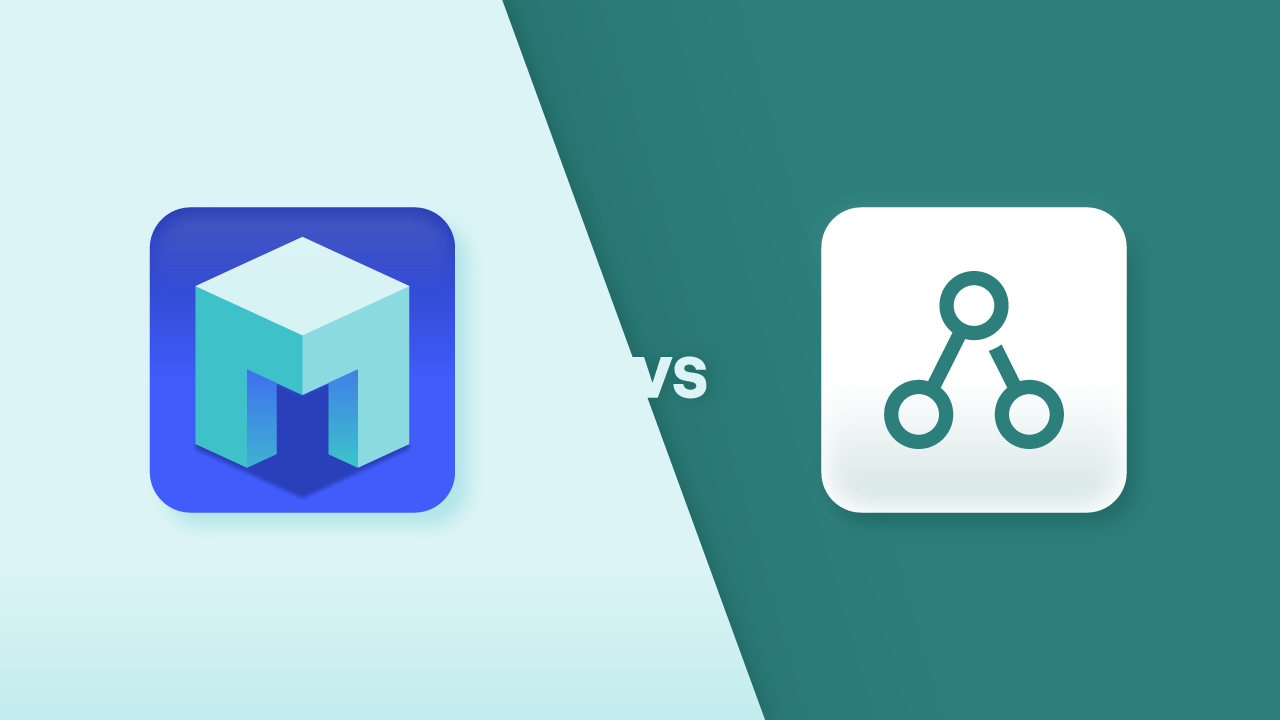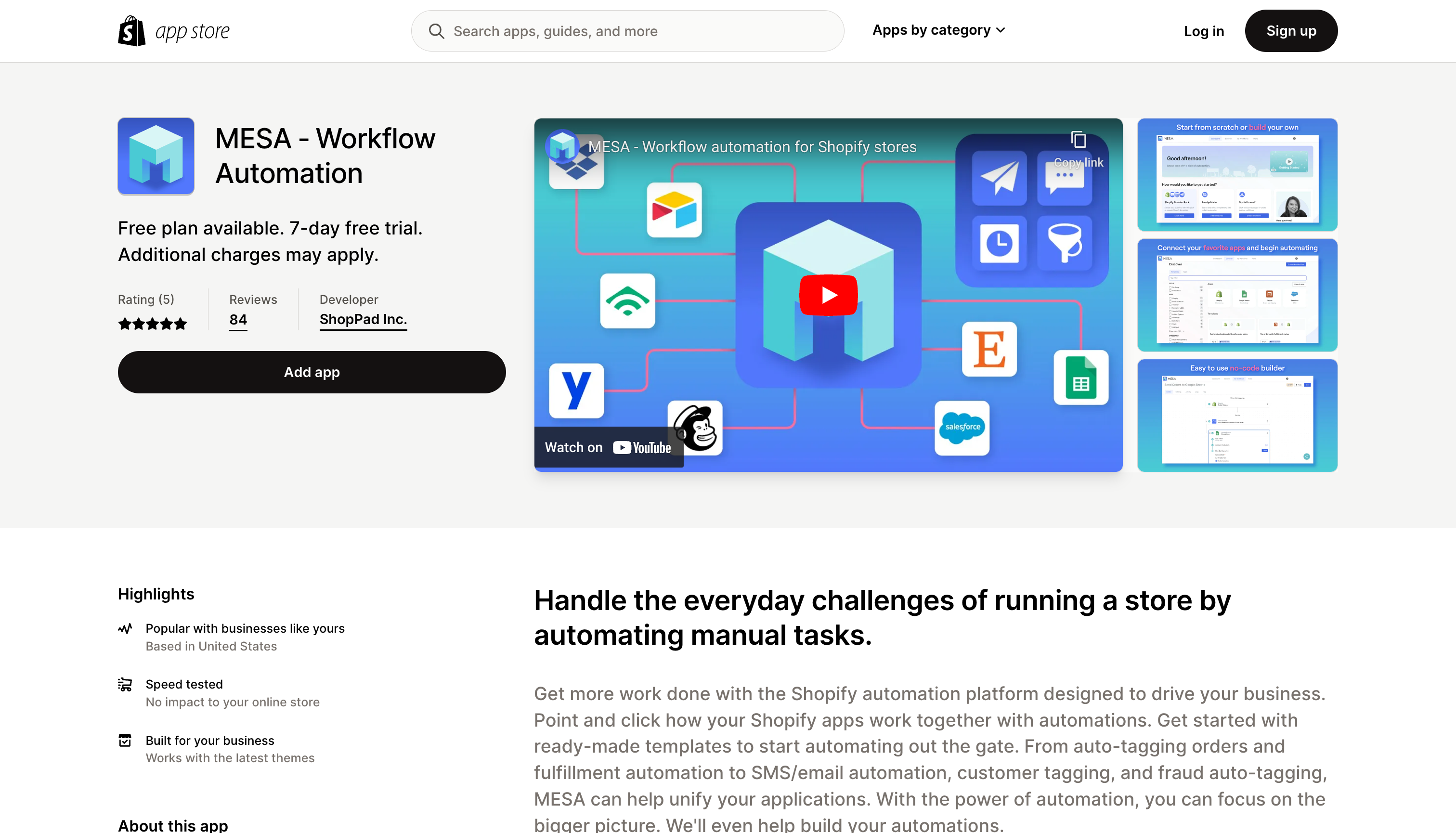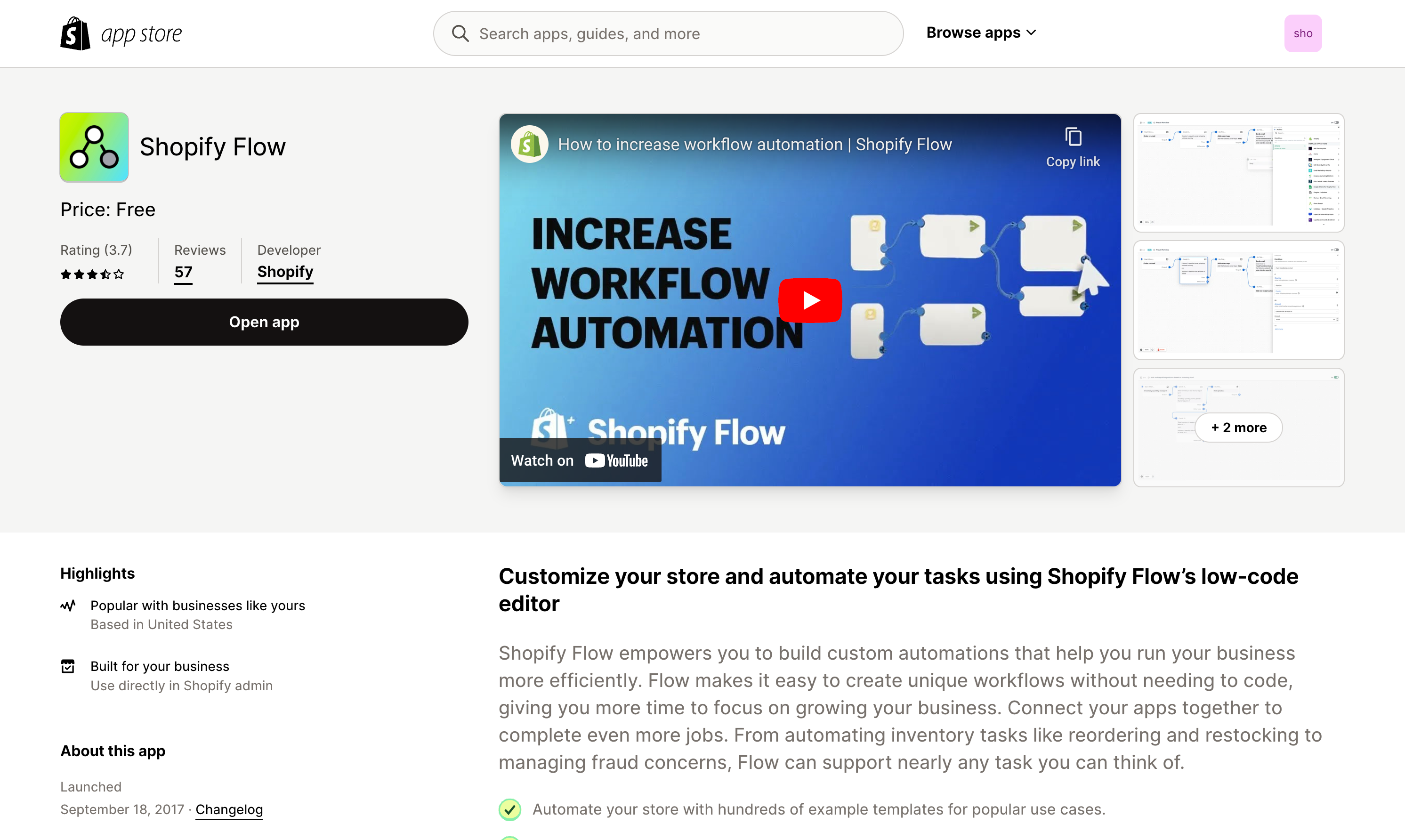Shopify Flow vs MESA – The Ultimate In Ecommerce Automation
Explore the definitive comparison of Shopify Flow vs MESA in our latest blog post. Discover which automation app best suits your Shopify store’s needs, offering insights into features, ease of use, and integration capabilities. Make an informed decision to enhance your ecommerce efficiency today.
For any growing business with an ecommerce store, setting yourself apart from your competitors can be simply out-executing their perceived services. While marketing the business will always be a top priority, equally, streamlining order fulfillment, organizing customer data, and optimizing marketing automation strategies to attract and retain new customers is just as important.
This is where choosing the right ecommerce automation platform comes in. Always verify new products before using them—especially when they’re core to your business operations. Getting ahead of workflow automation for your business apps will definitely help you leave your competitors behind.
Automation is a key element in making sure that you achieve operational efficiency while at the same time reducing possible errors and enhancing the overall productivity of your business. If you are navigating the expansive Shopify ecosystem, choosing the right app is an important decision that can significantly impact the success of your business.
Let’s take a look at two prominent players in the field: MESA and Shopify Flow.
Get the easiest, all-in-one automation platform for busy brands. Try MESA – no coding required.
Topics:
Main differences between Shopify Flow vs MESA

As a free app for all Shopify stores, Shopify Flow should be the first workflow automation app you use. When operations outgrow Shopify Flow, MESA offers an easy, no-code alternative to handle complex business needs.
When your business requires Shopify to work in slightly differently, create a new workflow. Shopify Flow is great for auto tagging orders, email marketing campaigns or connecting other Shopify apps to workflows.
However, as your business grows, so do the complications in how your business operates. Accessing specific data details is where the MESA workflow builder really shines. Choose from built-in tools like Filter, Delay, Email, SMS, and more to automate tasks of any complexity.
When choosing automation apps, understand their differences and how they support your business’s evolving needs.
Exploring MESA

★★★★☆ (4.7) Shopify App Store
Price: From $30/month. 7-day free trial.
MESA is touted as the premier, all-in-one automation app designed for busy brands, emphasizing its user-friendly, no-code approach. It allows for extensive customization across various aspects of workflow automation, from auto-tagging for simpler order management to complex integrations involving third party services. Moreover, MESA’s drag-and-drop interface simplifies the management of workflow automations, making it suitable for businesses of all sizes.This ecommerce automation platform not only promises ease of use but also offers exceptional customer support to ensure customers fully leverage the benefits of automation.
The app builds custom workflows for each business’s needs—no coding skills required. MESA enables automation across more than 100 apps that connect seamlessly with a wide array of popular e-commerce apps. This versatility ensures that businesses can automate tasks efficiently, regardless of the apps they use.
MESA stands out with its rich library of pre-built automation templates specifically designed for Shopify and Shopify Plus stores. These workflow templates, along with built-in tools for email, AI, SMS, forms, FTP, APIs, and approvals, provide a comprehensive automation solution. Moreover, MESA’s 5-star customer support, including live chat, ensures quick and effective resolution of any issues, allowing Shopify merchants to optimize their operations without any significant roadblocks.
Exploring Shopify Flow

★★★☆☆ (3.7) Shopify App Store
Price: Free app
Shopify Flow is a low-code app that automates and customizes Shopify store operations efficiently. To begin with, Shopify Flow is a low-code app that automates and customizes Shopify store operations efficiently. Additionally, its user-friendly interface allows you to create workflows with ease. Flow handles tasks like inventory and auto-tagging, and integrates smoothly with Shopify apps that support Flow connectors.
Additionally, adding a Shopify Flow workflow is easy. With templates catering to common use cases, you can customize these workflow templates using conditional logic and trigger multiple actions. The app supports a variety of functions and integrates with more apps and services, including tags, metafields, fulfillment processes, B2B operations, Slack, and Google Sheets, making it a great solution for automating various aspects of your ecommerce store.
The importance of choosing the right automation app
As the workflow automation space becomes more competitive, the importance of choosing the right automation app cannot be overstated. In addition, quick workflow creation, process optimization, and seamless integration are key to long-term growth and team alignment. Startups and enterprises need automation that meets current needs and scales with future growth.
How automation solves more business-critical challenges
In today’s fast-paced ecommerce world, you must understand how automation platforms solve key business challenges. Let’s break down this concept into key aspects:
Streamlining Repetitive Tasks: Automated workflows excel at handling repetitive, time-consuming tasks. By automating processes like order fulfillment, inventory management, and customer communications, you free up valuable time. This shift lets you focus on strategic, revenue-driving work instead of getting stuck in routine tasks.
Enhancing Accuracy and Consistency: Manual processes are prone to errors, which can be costly for your business. Furthermore, automation reduces the risk of human error, ensuring tasks are performed consistently and accurately. As a result, this consistency is critical in maintaining trust and reliability with your customers.
Scalability and Flexibility: As your business grows, the ability to scale operations efficiently becomes vital. Ecommerce automation apps can easily handle increasing volumes of work without the need for proportionate increases in staff or resources. Additionally, they offer the flexibility to quickly adapt processes in response to changing business needs or market conditions.
Data-Driven Decision Making: Automation tools often come with reporting features. These can help you gain insights into various aspects of your business using data like customer behavior and sales trends. Informed by data, you can make better strategic decisions and continuously refine your processes for improved performance.
Enhancing Customer Experience: Today’s consumers expect fast, personalized service. An automation platform can help you meet these expectations by enabling personalized marketing campaigns, swift customer service responses, and timely order processing. A better customer experience often translates to increased loyalty and repeat business.
Cost Efficiency: By automating tasks, you can often accomplish more with less, reducing the need for additional staff or overtime expenses. This efficiency can significantly lower operational costs over time.
Staying Competitive: In a digital-first world, businesses that leverage automation are often more agile and responsive to market changes. By adopting automation, you ensure that your business remains competitive and can seize opportunities more quickly.
Understanding and utilizing integrated workflows can transform the way you tackle more challenges. It’s not just about doing things faster; it’s about doing them smarter, with greater precision, and with a view towards scalable growth. MESA and Shopify Flow are designed to address these very challenges, offering tailored solutions and integrations that can significantly enhance your ecommerce operations.
Conclusion
In conclusion, the choice between MESA and Shopify Flow as your Shopify automation app depends on the specific needs and scale of your ecommerce operation.
MESA offers a broad range of features, extensive integration capabilities, and is highly customizable, making it a versatile choice for businesses of all sizes seeking comprehensive automation solutions.
On the other hand, Shopify Flow, with its seamless integration within the Shopify ecosystem, provides a straightforward and efficient automation experience, particularly suited for those just getting started automating their business processes.
Ultimately, the decision hinges on what aspects of automation are most critical to your own workflows. Are you looking for a solution that offers extensive customization and the ability to integrate with a wide variety of apps? Or do you need a more streamlined, Shopify-centric tool that aligns closely with your existing Shopify setup? By considering these factors, along with the potential for scalability and the quality of customer support, you can make an informed choice that not only enhances your operational efficiency but also drives your work forward in the competitive ecommerce landscape.
Remember, automation is not just about the technology; it’s about how it aligns with your goals and enhances your ability to serve your customers better. Whether you choose MESA or Shopify Flow, embracing automation is a step forward in optimizing your growing business operations and ensuring long-term success in the ever-evolving world of ecommerce.


